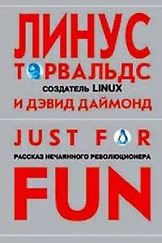Re 2: Your job is being a professor and researcher: That's one hell of a good excuse for some of the brain damages of minix. I can only hope (and assume) that Amoeba doesn't suck like minix does.
>1. MICROKERNEL VS MONOLITHIC SYSTEM
True, linux is monolithic, and I agree that microkernels are nicer. With a less argumentative subject, I'd probably have agreed with most of what you said. From a theoretical (and aesthetical) standpoint, linux loses. If the GNU kernel had been ready last spring, I'd not have bothered to even start my project: the fact is that it wasn't and still isn't. Linux wins heavily on points of being available now.
>MINIX is a microkernel-based system. [deleted, but not so that you miss the point] LINUX is a monolithic style system.
If this was the only criterion for the "goodness" of a kernel, you'd be right. What you don't mention is that minix doesn't do the microkernel thing very well, and has problems with real multitasking (in the kernel). If I had made an OS that had problems with a multithreading file system, I wouldn't be so fast to condemn others: in fact, I'd do my damnedest to make others forget about the fiasco.
[yes, i know there are multithreading hacks for minix, but they are hacks, and bruce evans tells me there are lots of race conditions.]
>2. PORTABILITY
"Portability is for people who cannot write new programs"
-me, right now (with tongue in cheek)
The fact is that linux is more portable than minix. What? I hear you say. It's true-but not in the sense that ast means: I made linux as conformant to standards as I knew how (without having any POSIX standard in front of me). Porting things to linux is generally/much/easier than porting them to minix.
I agree that portability is a good thing: but only where it actually has some meaning. There is no idea in trying to make an operating system overly portable: adhering to a portable API is good enough. The very/idea/of an operating system is to use the hardware features, and hide them behind a layer of high-level calls. That is exactly what linux does: it just uses a bigger subset of the 386 features than other kernels seem to do. Of course this makes the kernel proper unportable, but it also makes for a/much/simpler design. An acceptable trade-off, and one that made linux possible in the first place.
I also agree that linux takes the non-portability to an extreme: I got my 386 last January, and linux was partly a project to teach me about it. Many things should have been done more portably if it would have been a real project. I'm not making overly many excuses about it though: it was a design decision, and last april when I started the thing, I didn't think anybody would actually want to use it. I'm happy to report I was wrong, and as my source is freely available, anybody is free to try to port it, even though it won't be easy.
PS> I apologise for sometimes sounding too harsh: minix is nice enough if you have nothing else. Amoeba might be nice if you have 5-10 spare 386's lying around, but I certainly don't. I don't usually get into flames, but I'm touchy when it comes to linux:)
There were a few more installments in this, one of my few flame wars. But you get the point: There were opposing voices, even in the early days. (Or maybe the point is: Be careful when you put yourself out there in an electronic forum. Your typos and errors of grammar will haunt you forever.)
Linus and I leave our families and friends back at the campsite and take an afternoon hike along a clear stream. We're camping at Grover Hot Springs, way up in the Eastern Sierra over the July 4th weekend, at a site that seems to have been lifted from the pages of NacionalGeographic --"This is a Kodak moment," Linus proclaims, pausing to look out over a wildflower-dusted meadow and the dramatic cliffs that provide the backdrop. We settle at a site along the stream, and I ask him to describe his life during those days when Linux's appeal was spreading far beyond its original family of newsgroup enthusiasts, few of whom Linus had even personally met.
"It must have felt great," I say. "For years you were toiling away on your own in your bedroom, with little contact with the world outside your CPU. Suddenly you have people from every corner of the planet acknowledging what great work you're doing. You're the center of this growing community that is looking to you to --"
"I don't have a memory of it being a big deal for me," he replies. "I really don't think it was. It was kind of the thing I was thinking about all the time, but mainly because there was always a problem to be solved. In that sense, I was thinking about it a lot, but it was not, emotionally, a big thing. Intellectually, it was something big.
"I liked the fact that there were a lot of people giving me motivation to do this project. I thought I had seen the end of it, a point where it was almost done. But that point never came because people kept giving me more reasons to continue and more brainteasers to worry about.
And that kept it interesting. Otherwise, I probably would have just moved on to another project, because that's how I worked, and that was fun. But I suspect I worried more about my nose or something like that," he says.
A few weeks later we are at the Stanford Shopping Center, where Linus is perplexed over the selection of running shoes from which he can choose. "How many miles do you typically run each week?" asks the salesman. Linus smiles; he hasn't run as much as a mile during the past ten years. Exercise hasn't been a major priority. But in his weaker moments, Linus admits that he would like to shed some of his excess poundage.
"Tote must have convinced you to help me get rid of my pouch," he jokes, patting his gut.
"Tell her that her check never arrived this week," I reply.
Soon we are circling the Stanford campus in search of a legal parking space. After maybe half an hour, we do a few stretches, then we start to run over narrow dirt paths past the campus's dried up lake, into the woods, and in the direction of our goal: the huge hillside satellite dish. We never make it. I set an unfairly swift pace and am surprised that Linus can stick right behind me for about a mile. Then he loses his wind. A few minutes later we spread out on the grass along the lake.
"What was your family's reaction to everything that was happening to Linux?" I ask. "They must have been pretty excited about it."
"I don't think anybody really noticed," he replies. "I won't say that nobody really cared. But I had been doing programming most of my life, and this was not anything different as far as they were concerned."
"Well, you must have said something to your folks. Like if your dad was driving you someplace, didn't you say, 'Hey, you're not going to believe this but you know the stuff I've been doing with my computer? Well, I've got hundreds of people who are using it ..."
Читать дальше












